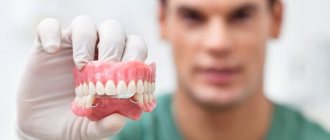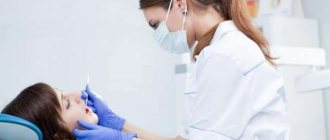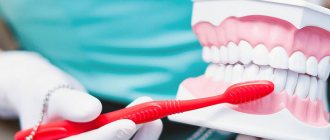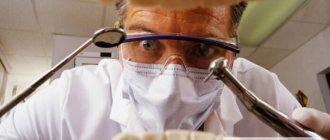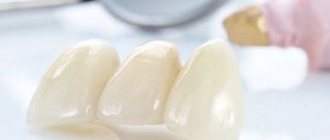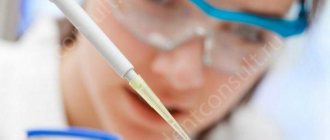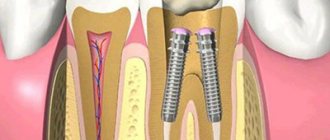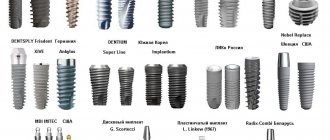- Reports and messages
- Professions
- Profession dentist
A dentist has always been an indispensable doctor, especially in modern society, when beauty and aesthetics come to the fore.
This is a doctor who treats the maxillofacial area. When diseases occur in the oral cavity, a dentist comes to the rescue. Since this type of medicine includes a fairly large part of the treatment, the dentist’s profession is divided into specifics. Doctors are working on bite and dental health. Surgery may also be performed.
One of the most familiar specialists to people is a dentist-therapist. This doctor conducts consultations and examinations of the oral cavity, that is, treats ordinary cases of diseases. For example, all kinds of inflammatory processes, caries, infections. When a person goes to the hospital with oral problems, this is the first doctor to visit. When the therapist sees that a given case is not within his competence, he redirects the person to the right specialist.
An orthopedic dentist deals with problems with bite problems and also provides patients with prosthetics. This is a narrow specialist for whom there are no secrets in these matters.
A dental surgeon is a specialist in extractions and other operations in the oral cavity. This doctor mainly inserts implants and also removes teeth that cannot be treated. This specialist is a wide-profile specialist; he treats the oral cavity from infections and neoplasms. Treats wounds throughout the entire mouth and neck. There is also a surgeon who specializes specifically in the maxillofacial part of the patient. His activities include complex operations that cannot be performed by a dental surgeon. For such operations, local anesthesia is used, as well as the highest skills in this field.
There is a separate pediatric dentist for children. This doctor has knowledge in psychology, because children need a special approach. Children are very afraid of dentists, so the doctor must show all his skills. The specialist has extensive knowledge in the field of treatment of primary teeth, because they have a number of features and differences from primary ones.
The list of specialists in the field of dentistry is completed by an orthodontist. His responsibility is to identify the abnormality of the teeth and jaw and treat it. He can heal all deformations and curvatures only if they arose naturally. If changes and disturbances occur in the case of injury, the doctor will transfer the patient to another specialist.
All of the above specialists can be combined under one word – dentist. There are quite a few educational institutions in our country where you can get a dental degree.
1st, 2nd, 3rd, 5th grade
History of the profession
The very first mentions of dental therapy are found in the history of Ancient Egypt. Tools similar to modern analogues have been found more than once in tombs. Many more Egyptian skulls with crowns on their teeth were also discovered there, and these were not only rich people. Judging therefore, it can be said that some types of dentistry were developed in Egypt. In addition, the first toothpaste was mentioned at the same time . It included:
- ashes of the burnt entrails of a bull;
- ground eggshell;
- myrrh;
- crushed pumice.
Then in the IV-V centuries. BC, the great Hippocrates became interested in this science. He recommended eliminating pain with a hot iron. At that time, many people suffered from toothache and did not understand how to deal with it. Fatalities from common flux were common, and during the time of Hippocrates, dentistry advanced several steps forward.
In your free time from work, you can earn extra money
on freelance exchanges (by writing comments, reviews, or simple actions on social networks) - choose what you like best and start earning money!
The first toothbrushes appeared in the Middle East in 500 AD. And in the 4th century AD. e. found forceps used to pull out bad teeth. And also powerful drugs that relieve pain appeared: arsenic and opium. Therefore, people began to understand that there is no need to rush to remove teeth, but that they can be treated. So, in 659 the first fillings appeared.
This specialization developed, and already in Russia, during the reign of Peter I, the profession of dentist officially arose, and rapidly became popular among men and women. In 1881, the first educational institution appeared in St. Petersburg, which trained future dentists. Then such institutions began to open throughout Russia.
February 9 is considered to be International Dentist Day, which falls on the day of St. Apollonia. After all, it was she who accepted martyrdom for Christ. She was tortured with forceps, which caused hellish pain.
Types of specialization
This type of activity is multidisciplinary and covers a wide range of activities. Therefore, modern science has divided this branch of knowledge into a number of specialized specialties:
- Dentist-therapist . You can find out what this doctor does if a person has dental problems and pain. His responsibilities include a preliminary examination of the patient’s teeth and prescribing subsequent treatment. He also treats caries and inflammation in the oral cavity. After examination and diagnosis, the doctor refers you to specialized specialists.
- Prosthetist . If the therapist did not cope with the task, then people come to this doctor. He deals with prosthetics and offers different options to patients. Then he makes a description, impressions of the teeth and adjusts them to the particular structure of the patient’s mouth.
- Dental hygienist . Examines the oral cavity, removes plaque, polishes enamel and advises people on the prevention of dental diseases.
- Orthopedist . It is based on the removal of distortions in the bite and the installation of different types of orthopedic dentures - removable, fixed and combined, and also corrects the position of the teeth in the oral cavity.
- Surgeon . You cannot do without it, because there are cases when surgical intervention is necessary. The surgeon prepares the oral cavity for the upcoming procedure of inserting dentures. His competence includes jaw practice, treatment of wounds on the face and mouth, and jaw restoration.
- Maxillofacial surgeon . The specialty of these doctors was complex operations of various types using general anesthesia and correction of the jaw area.
- Pediatric dentist . In young children, baby teeth have certain characteristics, and working with them requires skills. In addition, the pediatrician must get along with children so that they are not afraid before the procedure.
- Orthodontist . Unlike an orthopedist, he deals primarily with exceptional cases, anomalies, and deviations in the development of the jaw.
- Periodontist . Specializes in the gums and soft tissues that support and surround teeth. Consults patients about bleeding gums, the appearance of tartar and plaque on teeth.
All these names, or rather, specialties, can be mastered at the Faculty of Dentistry of a medical university. The first 2-3 years are spent on general training, and then there will be training in a specific profession. It is for this that you need to pass the exam for the category.
Acquiring skills
- Conduct an examination and diagnose the disease.
- Ability to analyze a situation in order to develop a treatment plan in the future.
- Read the x-ray.
- In certain cases, recommend possible solutions to the problem and encourage the patient to make the right choice.
- Describe in detail the rules of oral hygiene and, in general, how to care for your teeth and gums.
Link to the professional standard: https://www.przrf.ru/docs/full/kadrovoe_regulirovanie1/Ob-utverzhdenii-professionalnogo-standarta-Vrach-stomatolog/
You will have to work with different dental instruments and special equipment. Also with medications. Some areas even require computer skills. When it comes to prosthetics, modern doctors create mock-ups in special programs and then print them on 3D printers.
Initially, the newcomer will be faced with the need to work in practice with a supervisor. In the future, doctors can work with assistants who carry out assignments (preparing instruments, recording clients).
Labor operations:
- Preparatory stage: turning on the equipment, arranging medications if there is no assistant.
- Patient reception, examination.
- Prevention, diagnosis.
- Treatment of problem teeth or oral cavity.
- Taking impressions.
- Anesthesia if removal of a tooth, nerve, etc. is required.
- Paperwork.
Job Responsibilities
Even at the institute, immediately after admission, the student is prepared for future work and clearly delineates what will become his vocation.
Job responsibilities of a dentist include:
- carrying out diagnostics and providing all types of dental services to the patient;
- treatment of teeth, oral cavity and maxillofacial area;
- preparation of dental and orthopedic instruments and their correct use for their intended purpose, adhering to safety precautions;
- collection of biomaterial for analysis;
- carrying out prevention, diagnosis and treatment of all types of caries;
- correct removal, prosthetics and installation of fillings;
- registration of medical documentation established by law;
- compliance with job instructions.
These are mandatory items that require strict implementation.
Requirements for a dentist
In addition to the clearly limited responsibilities that define the work of a doctor, there are also qualification indicators that are used to guide the employment of specialists.
People who:
- have a diploma with higher medical education, a certificate of a certain specialization;
- passed a medical examination and received a medical certificate;
- have experience in this field;
- have computer skills;
- presence of responsibility, sociability, attentiveness and accuracy.
Personal qualities and skills are no less important for this profession. These include:
- the presence of excellent coordination of movements, hand motor skills, excellent vision;
- knowledge of human anatomy and physiology;
- understanding the effects of medications used in dentistry;
- ability to use specialized instruments, as well as an X-ray machine and interpret images.
It is inherent in a dentist to be a bit of a psychologist, to be able to communicate with nervous patients, to correctly explain the situation in order to relieve nervousness and calm the patient.
Qualities required by a dental specialist
Any person who has dealt with representatives of this profession notes that dentists are balanced and pedantic people who perform their work scrupulously and painstakingly.
Dental treatment can be compared to the work of a jeweler - the doctor’s actions must be so precise and nuanced. Let us list the main qualities that a dentist requires in his work:
- accuracy;
- ability to concentrate;
- endurance;
- excellent vision;
- clear eye;
- good memory;
- good physical health;
- developed fine motor skills of the hands;
- patience;
- emotional restraint;
- non-conflict.
Principles of training
If you decide to become a dentist, then you need to understand that this profession is very responsible. Therefore, it is necessary to obtain a medical education.
Those who are interested in dentistry are wondering: how long to study to become a dentist and what is needed for this. To enter a university, you must:
- complete 11 grades in a secondary school;
- pass the appropriate exams in biology, chemistry and Russian.
It is necessary to understand whether a person is ready for this profession. To obtain a specialty in this field, you need good study and a specific goal, as well as the ability to find an approach to even the most picky and harmful patients.
How does one usually build a career?
A career can be built in two directions:
- Practical. A dental intern develops into a full-time doctor. Then, gaining experience and demonstrating your development, you can grow to the head of the department and deputy head physician. The peak of the career is the position of chief physician.
- Theoretical. This is a scientific activity. To do this, upon graduation, you should apply to graduate school. Then you should defend your candidate's and doctoral dissertations. This will help you open a private school, which will be the peak of your career.
Salary and place of work
As mentioned earlier, the profession is in demand and profitable. Therefore, dentists have a wide choice of places to work:
- public and private clinics;
- dental offices;
- sanatoriums and children's institutions.
Factors that affect wages are length of service, qualifications and region.
Salaries in the specialty range from 30,000 to 100,000 rubles, and in large cities you can earn much more. As practice shows, in private clinics the income is much different compared to public clinics. On average, it is 45,000 rubles.
Advantages of the specialty
Dentistry, as a profession, is suitable for caring people. In addition to the fact that the specialty is in demand and provides a stable income, the work of a doctor brings moral satisfaction.
When a dentist helps people relieve pain, solve bite problems, straighten crooked teeth, or insert missing teeth, the results bring relief and joy to patients. This gives the specialist additional motivation to expand his skills, improve his qualifications, and continue professional growth.
There is an opportunity to build a career. After receiving their diploma, most graduates enter residency. They become narrow specialists. Those who want to go beyond dentistry complete an oral surgery residency and then enroll and study for another five years to become a plastic surgeon.
Having received a basic higher education in dentistry, it is possible to continue postgraduate education in specialties in demand in the administrative field of healthcare. This path is suitable for those who have organizational skills, a desire to occupy leadership positions, and participate in improving the provision of medical services.
Those who want to engage in teaching work can try to stay in departments of the faculty to teach students. It is better to choose a department - an area of competence - during your student years: participate in scientific student circles, interuniversity Olympiads, decide on the choice of a scientific advisor, and begin preparing for graduate school.
The development of related sciences, improvement of technological capabilities, the emergence of new materials and equipment facilitates research work. Graduates who want to engage in science will also find employment.
Resume sample
To find a job faster, you need a resume that can be sent to several companies at once. You need to know how to compose it correctly.
The resume must include:
- Full Name;
- Date of Birth;
- contact details: phone, email;
- citizenship;
- experience;
- basic and additional education;
- professional skills;
- knowledge of languages;
- personal qualities.
The resume should be simple and understandable; there is no need to write or invent a lot, because then in practice all the qualities and abilities of the specialist will be assessed.
The difference between a dentist and a dentist
A dentist is a dentist who is a paramedic. This concept is more commonly used abroad; in some countries it simply has not taken root.
This profession differs in the type of education. You can study at a medical school, college and get a secondary education to become a dentist, but dentists only need a higher education. Accordingly, their specialization will be different.
Responsibilities of a dentist:
- examination of the patient, making a primary diagnosis;
- gum treatment;
- installation of seals;
- oral hygiene instructions;
- provision of pre-medical care and referral to specialists;
- assistance in choosing toothpaste and brush.
A dentist is trained to work with simpler cases than a dentist, so his income will be different.
Lesson reflection
The teacher asks what was most remembered during the lesson, what seemed most interesting and significant. What new questions have arisen, how the information received can affect the future plans of schoolchildren (for high school students).
How to brush your teeth
Do not apply a lot of toothpaste to the brush (especially toothpastes with fluoride). Too much foam gets in the way.
Move the brush from the gums to the edges of the teeth. Do not move the brush across your teeth - this will knock plaque into the interdental space. Use circular motions or brush up and down.
Don't forget to brush your teeth from the gum line, the teeth in the back of your mouth, the inside of your teeth, and your chewing surfaces. Caries occurs due to inattentive cleaning of chewing surfaces.
Allow three minutes to clean.
Advantages and disadvantages
As in any profession, it is not the subject that matters, how much dentists earn, but the positive and negative nuances.
The positive aspects of working as a dentist include:
- qualifications are in demand in all countries of the world;
- high profit payment;
- normal working hours;
- Private practice is possible when you have a lot of experience.
There are also negative indicators that should not be forgotten. The negative aspects include:
- greater responsibility for the patient;
- high cost of training;
- possible stressful situations at work;
- competition;
- expensive equipment and tools;
- the need to constantly improve skills;
- working with different people.
Dentistry is a kind of art that has always been considered a prestigious profession. Therefore, every year students enter universities for this specialty in order to learn and then work and receive high wages.
Where to study
You can get a dental diploma in almost every regional center of the Russian Federation. The following higher education institutions are recognized as the most prestigious:
- Moscow State Medical and Dental University named after. A. I. Evdokimova.
- St. Petersburg State Pediatric University.
- First Moscow State Medical University named after I.M. Sechenov.
- North-Eastern Federal University named after M.K. Ammosova.
- Peoples' Friendship University of Russia (RUDN).
These universities, like many others, will allow you to obtain all the necessary knowledge for successful employment as a dentist.
